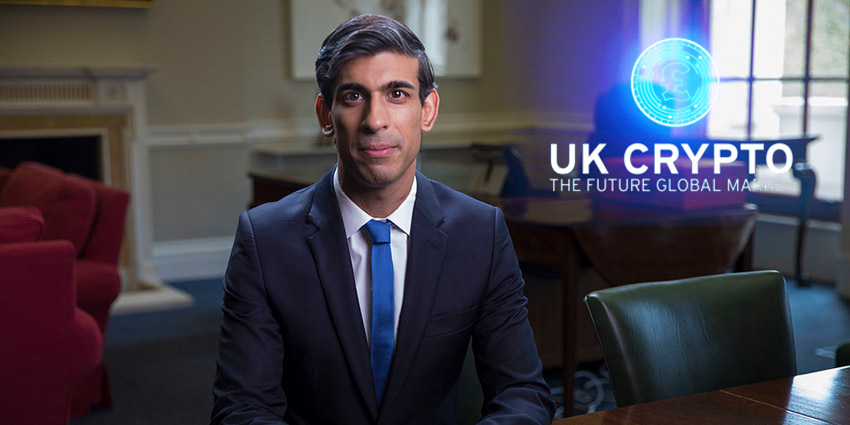The UK Government will launch a series of regulations to promote stablecoins as a form of payment and currency across the country, namely amid the rise of Web3, it was announced on Monday.
Stablecoins are crypto-based assets linked to fiat currencies such as the pound, US dollar, or Euro, which are controlled by central banks to maintain stability.
Her Majesty’s (HM) Treasury passed a “financial market infrastructure sandbox” to boost innovation for companies and has also unveiled a CryptoSprint think tank event in May, backed by the Financial Conduct Authority (FCA).
The Government’s Sandbox will facilitate experimentation, testing, and innovation among firms, using DLT and other emerging technologies. It also plans to launch a research programme for applying DLT to sovereign debt instruments such as government bonds, the government statement added.
The fresh moves will also see a partnership with the Royal Mint to produce non-fungible tokens (NFTs) and establish a Cryptoasset Engagement group for collaborating with the greater industry.
Chancellor @RishiSunak has asked @RoyalMintUK to create an NFT to be issued by the summer.
This decision shows the the forward-looking approach we are determined to take towards cryptoassets in the UK. pic.twitter.com/cd0tiailBK
— HM Treasury (@hmtreasury) April 4, 2022
The move aims to position the UK as a major global hub for cryptocurrencies and other emerging technologies, as well as to attract foreign and domestic investments.
Additional legislation will tap the UK’s tax system competitiveness to facilitate the rising cryptocurrency market, among others.
The news comes after Rishi Sunak, UK Chancellor of the Exchequer, said in a statement he hoped to position Britain as a “global hub for cryptoasset technology” in a bid to allow firms to “invest, innovate and scale up” the nation.
He explained further, stating,
“We want to see the businesses of tomorrow – and the jobs they create – here in the UK, and by regulating effectively we can give them the confidence they need to think and invest long-term”
Such measures were part of the UK’s plan to ensure its financial services sector was “always at the forefront of technology and innovation,” he concluded.
According to the UK Government, passing the legislation will allow it to build standards and monitor the stability of cryptoassets for ‘reliable and safe’ public use.
UK Economic Secretary Weighs in on Crypto, NFTs
The news comes after the Innovate Finance Global Summit, where John Glen, British Economic Secretary to the Treasury, delivered a speech at the major event on Monday.
Glen stated the United Kingdom would also seek out use cases for Distributed Ledger Technology (DLT), allowing for decentralised data synchronisation to improve transparency in transactions.
Watch live as Economic Secretary to the Treasury @JohnGlenUK tells the @InnFin Global Finance Summit the steps we are taking to position the UK as a global hub for cryptoasset technology. https://t.co/qJMXHpK01p
— HM Treasury (@hmtreasury) April 4, 2022
Glen continued by revealing the Government would consider “the legal status of Decentralised Autonomous Organisations (DAOs)”
He explained that English law should provide legal frameworks for using the “borderless technologies”, adding,
“Of course, all of this activity is happening against a backdrop of exciting, transformative innovation around the next evolution of the internet: Web3, as many call it. No-one knows for sure yet how Web3 is going to look. But there’s every chance that blockchain is going to be integral to its development… with a more decentralised, open and user-owned ecosystem”
UK Vies for Emerging Tech Market
The UK Government has also launched several initiatives to promote the use of virtual, augmented, and mixed reality technologies, namely after the Department for Education (DfE) opened its first-ever AR Careers Fair to educate young students on potential career paths, using Snap’s AR Lens tool.
The news comes as the UK government pushes for greater control in the tech sector, namely after lawmakers introduced an Online Safety Bill that would slap major tech firms with massive sanctions valued at 10 percent of annual turnover and jail time for executives failing to protect online users.
Countries and regions such as China and the European Union (EU) have voiced interest in cryptocurrencies and the Metaverse, the Web3-based successor to the Internet, with the former rolling out its sovereign stablecoins over the last few years and exploring new extended reality (XR) solutions.
European Commissioner for Competition, Margrethe Vestager, also urged European officials in February to explore the Metaverse to better regulate the rise of the spatial communications platform.
Barbados also became the first country to launch a fully-functional embassy in the Metaverse for citizens and travellers, and the United Arab Emirates (UAE) became the first to open the first-ever healthcare Metaverse platform under the Ministry of Health and Prevention.







